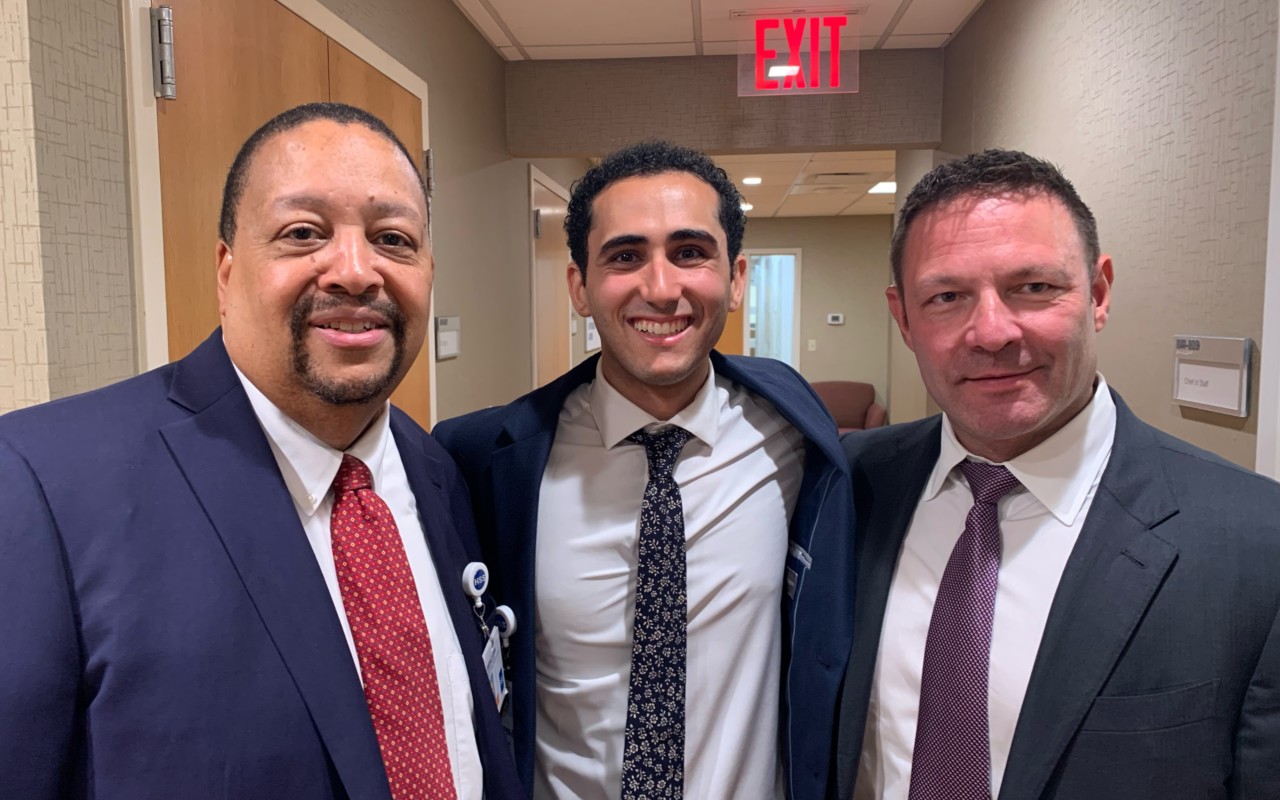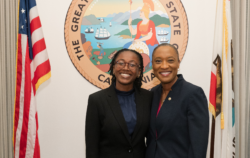
Ubben Posse Fellow Interviews: Dr. Bryan T. Kelly, MD, MBA
The Jeff Ubben Posse Fellows Program awards five exceptional Posse Scholars $10,000 each and the chance to spend 4-6 weeks during the summer shadowing and learning from a major industry leader. The interview below with Dr. Bryan T. Kelly, CEO of the Hospital for Special Surgery, was conducted by Posse Scholar John Saleeb, now in his junior year at Northwestern University, who worked with Dr. Kelly as a 2024 Jeff Ubben Posse Fellow. The conversation has been edited and condensed.
JOHN: When did you know you wanted to go into medicine and become an orthopedic surgeon? Was that something your parents suggested, or was it just something you discovered on your own?
DR. BRYAN KELLY: My father was an oral maxillofacial surgeon, and growing up, I had no interest in going into medicine. The training for a maxillofacial surgeon now typically includes both dental school and medical school, followed by a dental residency, and then a specialty in oral surgery.
After I finished high school, I was drawn to attend Brown University because students did not have to take required courses. I didn’t have to take any science or math classes, so I only needed to pass 28 courses to graduate.
I majored in music and earned a second degree in psychology. I had some interest in neuropsychology, so I did get a bit of neurobiology, which I found fascinating in terms of how the brain works. At that time, I thought I might become a forensic psychologist, working with the mentally ill.
During that period, I was also involved in track and field, specifically throwing the hammer. I injured myself, which gave me an extra year of eligibility. I finished my music and psychology degree requirements and realized I had no future in those fields. So, I decided to complete my pre-medical requirements and earn a Bachelor of Science to see what would happen.
I stayed another year, completed my pre-medical requirements during summer school, and then took a year off because I didn’t finish in time to take the MCAT. I spent that year working in an outpatient facility that specialized in treating people with psychiatric disorders. The town I lived in (Danbury, Connecticut) had just closed Fairfield Hills Hospital, the local inpatient mental institution, as part of a deinstitutionalization movement. This movement aimed to integrate psychiatric patients back into the community, rather than keeping them in long-term inpatient facilities. Some patients had been in psychiatric wards for 20 or 30 years and were now trying to live independently.
As a case manager, I was assigned to the most challenging patients, those who were triple diagnosed with a psychiatric disorder, a learning disability, and substance abuse issues. I was fortunate—or perhaps unfortunate—because everyone gave me their most difficult patients. One of my favorite patients, Pete, had at least three serious diagnoses. This posed a big challenge for me as his case manager, but eventually I realized that the one thing he cared about was tattoos. So I created a "tattoo therapy" for him, whereby if he held down a job for a month, I would go with him to pick out a tattoo. He ended up getting seven tattoos that year, and he held down jobs for seven months.
Was being a case manager your first job?
I had typical high school jobs. I was a lifeguard, worked in construction pouring foundations one summer, and painted houses throughout the summers during college and medical school. But my first "real" job, the one that wasn’t just a high school or college job, was as a case manager.
What were you like as a 20-year-old college sophomore or junior? How did those early jobs shape your approach to leadership?
Those early jobs, like pouring concrete foundations and painting houses, taught me the importance of self-discipline and leading oneself. When I was working on foundations, I was often dropped off in the middle of the woods, alone, with the task of removing the forms from the set concrete. These forms were 10 feet high, 3 feet wide, and weighed about 100 pounds each. I had to knock off the latches, climb up, kick them off, and then stack them. It was isolating, physically demanding work, but it taught me a lot about the value of self-discipline and perseverance.
Painting houses wasn’t very social either because I was often up on a ladder, working alone. But these experiences taught me that before you can lead others, you must be able to lead yourself. These jobs were physically challenging, and they instilled in me a sense of self-discipline that has been crucial in my career. Whether it’s a physically demanding job or an emotionally taxing one, it all comes down to managing what’s in front of you, leading yourself, and then leading others.
How did your transition into medicine happen?
Medical school was really challenging for me, especially the first two years, which were all basic science. I attended Duke University, which has an accelerated basic science curriculum, and the first four or five months were particularly rough. I didn’t have a science background—I hadn’t even taken physics or biology in college—so I had to catch up quickly. But that experience taught me how to manage studying and how to adapt to challenges.
When I got into the third-year rotations, I noticed that the residents, who had been doing all this hard work, were happy. They were learning, seeing everything, and they were in good spirits, even during a tough job. That was a big adjustment for me, but it was a valuable lesson.
What was the hardest part of medical school for you? And what did you find most rewarding?
The most rewarding part was learning how to be a good clinician—working with patients, understanding them, getting to know them, and making a difference in their lives. That was far more rewarding than the basic science, though I understand that you need a strong foundation in science to be a good clinician.
A lot of people ask about how to prepare for leadership in medicine. The truth is medical school doesn’t teach you much about leading others or working with people. There are a lot of books about leadership, but it’s something you must experience and learn on the job. Managing staff and figuring out how to best work alongside a team—these are things you can read about, but real understanding comes from doing.
Can you describe a moment in your career when you had to lead a team or group? How did you approach it, and what did you learn from the experience?
When I first started as an attending physician, I was managing my first group of residents and fellows. What I learned was the importance of communication and understanding the perspectives of the people you’re working with. Leadership isn’t just about giving orders—it’s about listening, aligning people’s strengths with the team’s goals, and working together to achieve success.
As an attending physician, were you focused solely on practicing surgery, or did you consider hospital administration or other roles?
My initial focus was on building a sports medicine practice and becoming a team doctor. After completing my residency and fellowship, I returned to Hospital for Special Surgery (HSS) to work with Dr. Russ Warren and the New York Giants. I also aimed to develop a hip preservation program, which became a significant focus. Starting the program and getting buy-in was my first major leadership challenge.
How would you describe your leadership style?
My leadership style focuses on understanding the complexity of other people and aligning their strengths with roles that maximize their potential. It’s about empowering others and finding the right fit for everyone within the organization. We use the term "distributed leadership" to describe this approach, which emphasizes collaboration and empowerment.
What advice would you give to someone who is just starting out in a leadership position?
I would say that it’s important to focus on leading yourself first. You need to have a clear understanding of your own strengths and weaknesses before you can effectively lead others. Also, don’t be afraid to ask for feedback and learn from others. Leadership is a continuous learning process, and being open to learning and adapting is crucial. I think it’s been the ability to adapt and continuously learn. Whether it’s in medicine or leadership, being open to new ideas and approaches and being willing to adjust your strategies based on what you learn has been key. Also, having a strong sense of purpose and being committed to your goals is important.
I would tell others to be more open to the unexpected opportunities and paths that come along. Sometimes, the journey takes you in directions you didn’t anticipate, and that’s okay. Embrace those opportunities and learn from them.

